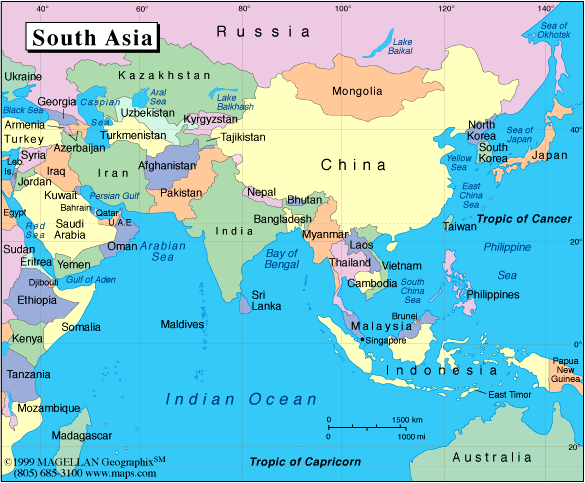Associated Press
written by Margie Mason
Friday March 27, 2015
JAKARTA, Indonesia — An estimated 4,000 foreign fishermen are stranded on a number of remote islands in eastern Indonesia, including men revealed in an Associated Press investigation to have been enslaved, an aid group said.
Many of the migrant workers were abandoned by their boat captains following a government moratorium on foreign fishing that has docked vessels to crack down on illegal operators, said Steve Hamilton, deputy chief of mission at the International Organization for Migration in Indonesia.
"It is reasonable to expect many are victims of trafficking, if not outright slavery," he said, adding the group has been working for years with Indonesian authorities to repatriate trafficked fishermen.
About a quarter of the men are in Benjina, a town that straddles two islands in the Maluku chain, according to an Indonesian official who recently visited the area.
The AP reported Wednesday that men were locked in a cage at a fishing company in Benjina. Journalists interviewed more than 40 migrant workers from Myanmar who said they had been brought to Indonesia from Thailand and forced to work on trawlers with Thai captains. Some are runaway slaves who have lived in the islands for five, 10 or even 20 years.
They described horrendous working conditions while at sea, saying they were forced to drink unclean water and work 20- to 22-hour shifts with no days off. Almost all said they were kicked, whipped with toxic stingray tails or otherwise beaten if they complained or tried to rest. They were paid little or nothing.
The yearlong AP investigation used satellites to track seafood caught by the slaves from a large refrigerated cargo ship in Benjina to Thailand, where reporters watched it being unloaded onto dozens of trucks over four nights. The lorries were then followed to a number of processing plants, cold storage operations and the country's largest fish market. From there, U.S. Customs records were used to link the fish to the supply chains of some of America's largest supermarkets and retailers.
The report prompted the U.S. government and major seafood industry leaders to renew their calls on the Thai government to crack down on slavery at sea and to punish those responsible. Thailand's biggest seafood company, Thai Union Frozen Products, announced that it immediately cut ties with a supplier after determining it might be involved with forced labor and other abuses.
Thai and Indonesian leaders have said they are investigating and will take action to end slavery.
*****
Mizzima News, Myanmar/Burma
written by Staff
Friday March 27, 2015
A year-long investigation by Associated Press reporters has revealed hundreds of Myanmar migrant workers are being used as slaves on fishing boats in Indonesian waters.
The report by Robin McDowell, Margie Mason and Martha Mendoza entitled, AP Investigation: Are slaves catching the fish you buy? examines the fate of hundreds of migrant workers – mostly Myanmar nationals – tricked into working on fishing boats in Indonesian waters under bad conditions, unable to escape.
According to the report by AP, released on March 25, the men interviewed on the Indonesian island village of Benjina were mostly from Myanmar, one of the poorest countries in the world. They were brought to Indonesia through Thailand and forced to fish. Their catch was then shipped back to Thailand, where it entered the global stream of commerce. Many men are said to have died.
The report, which included video footage, shows men locked up in Benjina and includes men shouting at night from a fishing boat to the reporter that they were being held against their will.
The reporting suggests the workers primarily from Myanmar and Thailand are used on Thai fishing boats and the resulting marine catch ends up in Thailand and on dining tables in the United States and Europe.
The revelations are not new. Thailand’s ranking in the US Trafficking in Persons assessment has fallen and several media reports have covered the abuse of migrant workers in the fishing industry. However, the AP report comes out with more “smoking gun” evidence of slavery in the Southeast Asian fishing industry and covers the issue in depth. Thai fishing boats and their captains are painted as the main culprits in the affair.
Thai reporting on the slavery allegations has resulted in a harsh response from Thai junta leader Prayuth Chanocha.
General Prayuth said the government will summon Channel 3 journalist Thapanee Ietscrchai who has been carrying out her own reporting on the slavery revelations on Indonesia’s Benjina Island. She reported about hundreds of graves said to belong to Thai fishermen who died allegedly due to the poor conditions or abuse.
“Please don’t escalate this news,” he told the Thai media.
"I tell you Thapanee. Come see our officers. What good does it do to talk on the outside? If I cannot solve this problem because of your report, what would you say? Is it illegal?” said General Prayuth in an angry tirade, according to the Bangkok Post.
He asked the media not to report on human trafficking without considering how the news will affect the Thailand’s seafood industry and reputation abroad. Millions of dollars in business is at stake, he said.
The Thai leader lashed out at reporters on March 25, saying he would “probably just execute” those who did “not report the truth,” in a straight-faced comment that has further worsened his relations with the media.
- See more at: http://www.mizzima.com/news-international/myanmar-slaves-thai-boats-spark-controversy#sthash.tFUTqvQ4.dpuf

















.jpg)









































